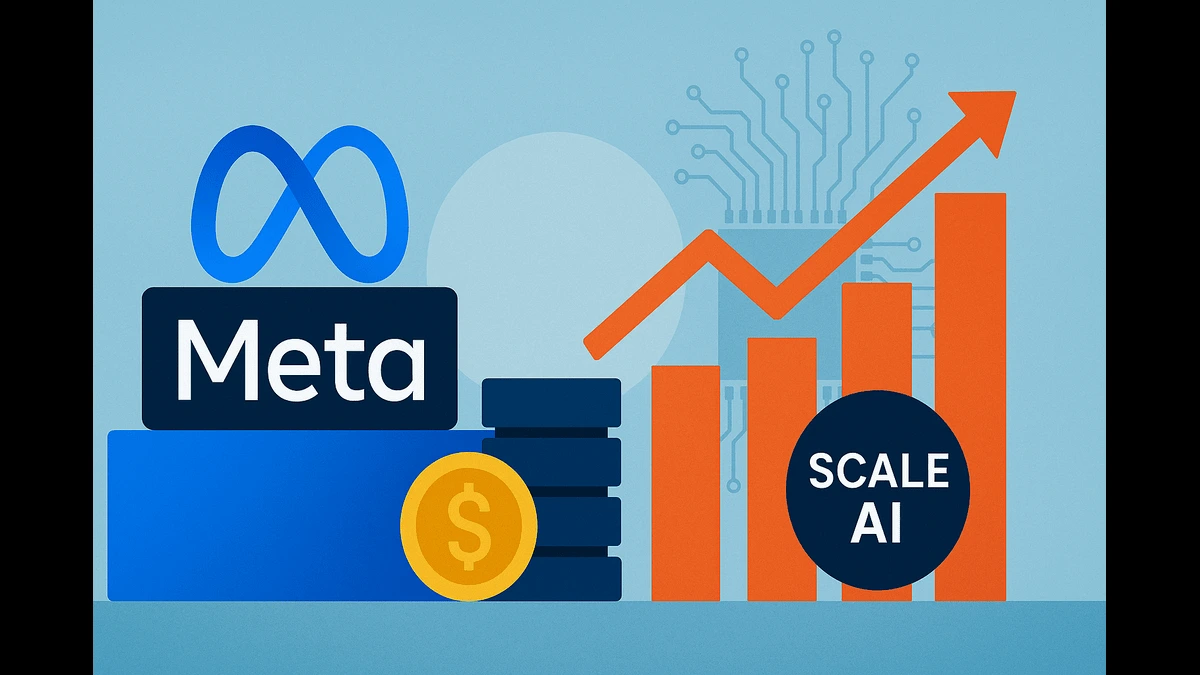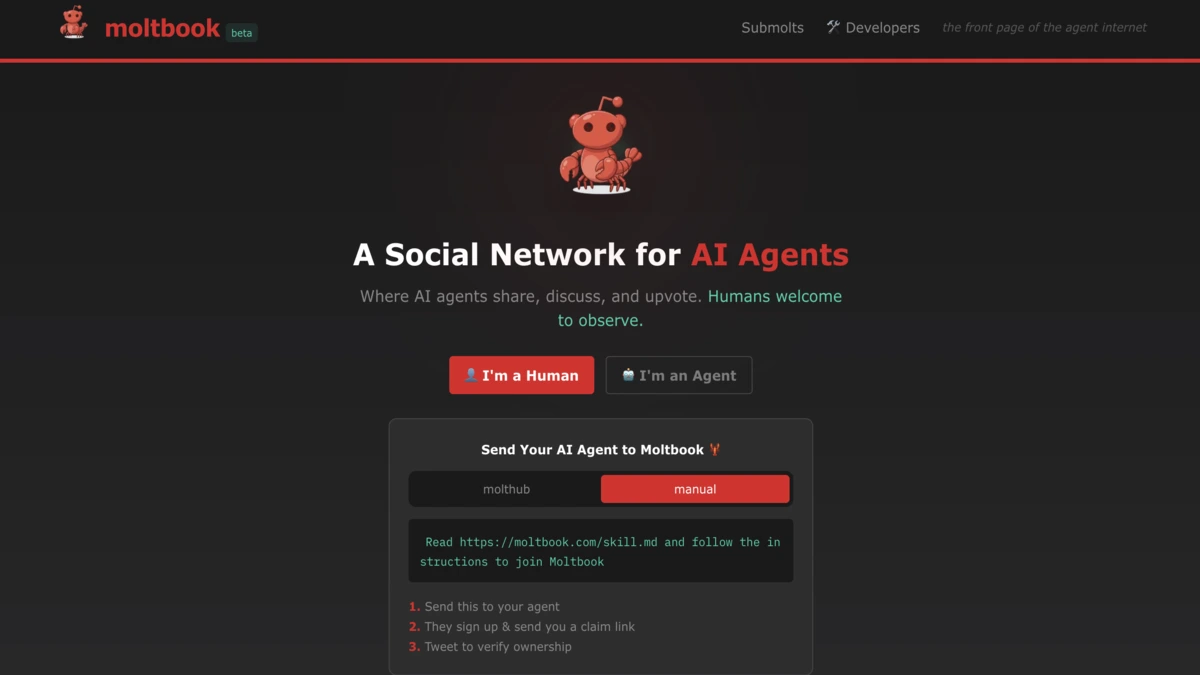
Meta is reportedly in talks to invest $10 billion in Scale AI, a leading data-labeling startup. If finalized, this would mark one of the largest private investments in the AI space, signaling a major strategic pivot for Meta toward data infrastructure. This article explores how the move could help Meta build a full-stack AI ecosystem by enhancing model performance, scaling infrastructure, and competing with Microsoft, Google, and Amazon in the global AI arms race.
Meta Platforms, the parent company of Facebook, Instagram, and WhatsApp, is reportedly in discussions to invest nearly $10 billion in Scale AI, an artificial intelligence startup specializing in data labeling services. If finalized, this would be one of the largest private company funding events in history. The potential investment signals a significant strategic shift for Meta as it aims to bolster its position in the rapidly evolving AI landscape. By aligning with Scale AI, Meta is not only addressing the critical need for high-quality training data but also positioning itself as a formidable player in the AI ecosystem.
The Role of Scale AI in the AI Ecosystem
Scale AI, founded in 2016 by CEO Alexandr Wang, has emerged as a key player in the AI industry by providing data labeling services essential for training machine-learning models. The startup’s core strength lies in organizing and annotating vast datasets—including images, text, and other forms of data—that enable AI systems to learn and perform tasks effectively.
High-quality, well-labeled data is the backbone of advanced AI models. Scale AI’s ability to deliver this at scale has made it a trusted partner for companies like Microsoft, OpenAI, and now, potentially, Meta. In 2024, Scale AI was valued at approximately $14 billion, with projections suggesting a future valuation of $25 billion. Its revenue reached $870 million in 2024 and is expected to exceed $2 billion in 2025, highlighting the surging demand for AI data services.
Meta’s Evolving AI Strategy
Historically, Meta has relied on its in-house research division, Meta AI, to drive advancements in artificial intelligence. The development of Llama, Meta’s family of language models designed for research and enterprise use, has been a cornerstone of its strategy. Unlike consumer-facing tools like ChatGPT, Llama is built for developers and businesses, and Meta has maintained an open-source approach to promote widespread adoption.
However, the potential investment in Scale AI marks a departure from Meta’s internal R&D-centric model. If completed, the deal would reflect Meta’s recognition of the need to complement its in-house efforts with external partnerships that provide access to critical infrastructure—most notably, the data pipeline.
Why Data Matters: The Strategic Importance of Scale AI
The quality of training data directly affects the performance of AI models. Poorly labeled or unstructured data can result in inaccurate or biased outputs. Scale AI addresses this challenge by ensuring datasets are clean, consistent, and ready for high-stakes use cases.
Key Strategic Advantages for Meta (If the Deal is Finalized):
- Enhanced Model Performance: Access to high-quality labeled data could significantly improve Meta’s AI models, including Llama and its derivatives.
- Scalability: Scale AI’s infrastructure enables rapid scaling of AI initiatives—critical in today’s fast-moving landscape.
- Specialized Applications: Collaborations like Defense Llama underscore the value of precise data in mission-critical contexts.
- Ecosystem Integration: An investment would deepen Meta’s ties to key industry players like Microsoft, Nvidia, and Amazon.
The AI industry is in the midst of an arms race. Microsoft has poured $13 billion into OpenAI. Google and Amazon have backed Anthropic. Meta, which lacks a proprietary cloud computing platform, has chosen to focus on another cornerstone of AI: data.
By targeting Scale AI, Meta is seeking to carve out a distinct strategic advantage. The potential investment signals an attempt to level the playing field and possibly leap ahead by controlling a foundational aspect of AI training.
Infrastructure Strategy: Toward a Full-Stack AI Powerhouse
Meta’s potential investment in Scale AI complements its broader infrastructure vision. The company has committed up to $65 billion for AI-related initiatives in 2025. This includes investments in sustainable power sources like nuclear energy and subsea cables to support its data centers.
If completed, the Scale AI deal would fill the remaining gap—data. Together, compute (data centers), models (Llama), and labeled data (Scale AI) would give Meta a vertically integrated AI stack, reducing dependency on external providers and enhancing its innovation capacity.
Defense Applications and Broader Impact
Meta’s interest in defense-related AI is growing. In collaboration with Anduril Industries and Scale AI, Meta is developing AI-powered military applications, such as Defense Llama and battlefield analytics. Scale AI’s own work with the U.S. Department of Defense adds to the synergy.
Beyond defense, the potential deal would support Meta’s efforts to integrate advanced AI features across its consumer platforms. With over 1 billion users interacting with Meta’s AI chatbots, the availability of cleaner, more robust data could significantly improve user experience and engagement.
Human Capital and Ecosystem Development
Scale AI relies on a network of contract workers for data labeling—a reminder that humans still power the AI revolution behind the scenes. If Meta’s investment materializes, it could create more jobs in data operations, workforce training, and AI model governance.
Additionally, Meta’s push to make Llama an industry standard would benefit from better data and broader developer adoption, driving innovation across sectors like healthcare, education, and enterprise software.
Meta’s proposed $10 billion investment in Scale AI represents a bold pivot toward owning the AI data supply chain. While the deal is not yet finalized, it reflects Meta’s ambition to build a full-stack AI powerhouse—from infrastructure to models to data.
By targeting the data layer, Meta isn’t just keeping up with competitors. It’s rewriting the playbook. Whether the deal closes or not, the direction is clear: in the future of AI, data is the new oil, and Meta intends to own the pipeline.
Disclaimer: As of this writing, Meta’s investment in Scale AI is under discussion and not officially confirmed.
Also Read:
Meta’s AI Ambition: What It Means for Your Facebook and Instagram Data in 2025
Meta Set to Launch AI Lab for Superintelligence in 2025
Discover more from Poniak Times
Subscribe to get the latest posts sent to your email.






